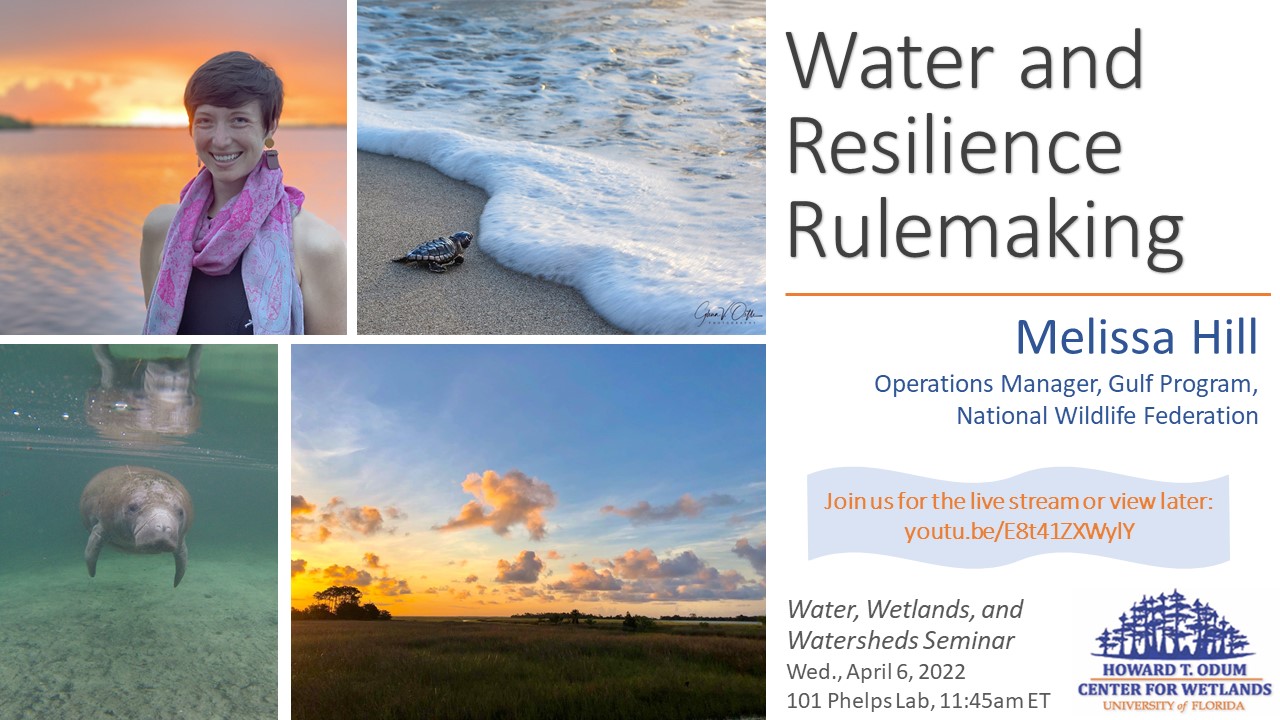Water and Resilience Rulemaking
Melissa Hill, Operations Manager, Gulf Program, National Wildlife Federation
Join us for the live stream April 6, 11:45am EST: youtu.be/E8t41ZXWylY
(Please visit our youtube channel main page for the stream if there are any issues with the direct link.)
ABSTRACT
In 2020, the Clean Waterways Act (SB 712) passed the Florida Legislature with bipartisan support. This piece of legislation was aimed at minimizing the impacts of nutrient pollution and strengthen regulatory requirements. Components of the bill included septic tank regulation, wastewater discharge, infrastructure upgrades, stormwater rules, and agricultural compliance. In 2021, Senate Bill 1954 was signed into law to enhance efforts to protect waterways, coastlines, shores, and reefs in the face of sea level rise. In addition to these key pieces of legislations, more budget appropriations, bills, rules, and programs have been created to address some of Florida’s most pressing issues. But where do they stand today? I will present on the status of some of the current policy and regulatory measures being crafted at the state-level for addressing coastal resilience, flooding, and water quality and quantity. Examples of other programs across the Gulf will also be briefly highlighted to showcase similar planning around the region being done to address coastal issues.
Bio
Melissa Hill (she/her/hers) is the Program Manager for the National Wildlife Federation’s (NWF) Gulf Program. Her work is centered on addressing resilience issues, habitat protection, and water quality needs along Florida’s Gulf coast. She received her masters from the University of Florida in Interdisciplinary Ecology and a certificate in Environmental Education and Communication. She has published her research in human dimensions using surveys and interviews to determine Florida homeowner’s understanding of coastal conservation easements, threats from erosive events, and impacts to threatened and endangered species including sea turtles. Prior to joining NWF’s Gulf Program, she served as a land acquisition specialist and watershed coordinator to permanently protect natural and working lands in Florida. During this time, she worked with state and federal agencies to shepherd projects through their land protection processes including the Florida Forever, Rural and Family Lands, Florida Communities Trust, and Farm Bill Programs. Born in Florida, she has collaborated with many state, local, and national agencies and nonprofits working to advance public and private conservation across the state.
POSTCARD

